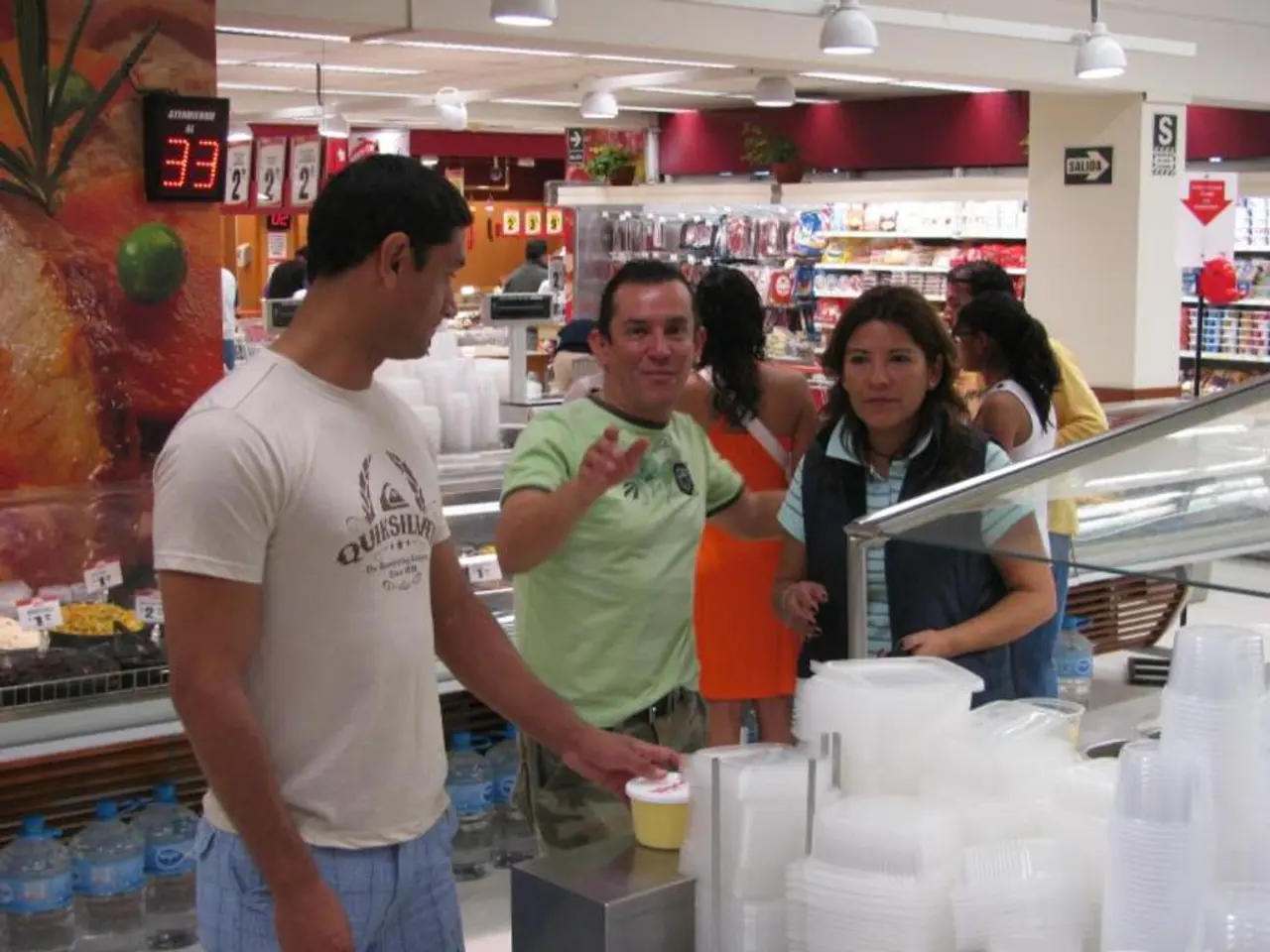Human Intervention in Automation: The Ongoing Importance of Human Involvement in Robotics and Tech
In the heart of the Netherlands, Picnic Technologies, the fastest-growing online supermarket, is redefining the future of work. Led by its Chief Technology Officer, Daniel Gebler, the company is leveraging automation to boost efficiency without replacing human workers.
The latest evidence of this approach can be seen in Picnic's automated fulfilment centers, where robotic arms take over the item-picking process, lightening the load for 'shoppers'. These centers, such as the one in Oberhausen, Germany, are capable of processing up to 33,000 online orders per day, serving up to 200,000 households.
But Picnic doesn't rely solely on robots. The company uses product whitelisting to decide which orders a robot can fill, ensuring that irregularly shaped items, fragile goods, or high-value products like champagne bottles are handled with care by human 'shoppers'. The warehouse employs 1,500 robots and 1,000 humans, a testament to the harmony between technology and human labour.
Daniel Gebler, in an interview, shared the secrets behind Picnic's success. He emphasised that the future of work is about reinvention, not replacement. Teams at Picnic have used this freedom to launch return deliveries and offer curated meal packages, demonstrating the importance of human creativity and adaptability.
Gebler is also pushing for "AI-free days" to sharpen human skills. He believes that AI will reinvent management, not eliminate it. AI can crunch data but can't improvise like a human. The rise of AI is transforming what "management" means inside companies, but the relevance of ownership will become more important as everyone becomes a designer, builder, and operator.
The last step - packing items into a customer's delivery box - is still done by hand. Humans can easily rearrange crates to maximize space, while robots require predefined layouts. The future isn't humans versus robots, but humans with robots. Automation is best at handling repetitive, structured tasks, while humans shine in areas requiring adaptability, creativity, and judgment.
The image credit for this article is "BvOF RoboCup2013 - RoboCup Soccer Nao" by RoboCup2013, licensed under CC BY 2.0. Picnic's initiatives show that the future of work is about collaboration, not competition, and that the human touch will always be essential in the face of technological advancements.
Read also:
- Antitussives: List of Examples, Functions, Adverse Reactions, and Additional Details
- Asthma Diagnosis: Exploring FeNO Tests and Related Treatments
- Mass immunization campaign launched in Pakistan, with over 19 million children inoculated against polio; floods reportedly hindering efforts to fully eradicate the disease
- Preparations underway amongst European countries for a prospective age of international chaos








